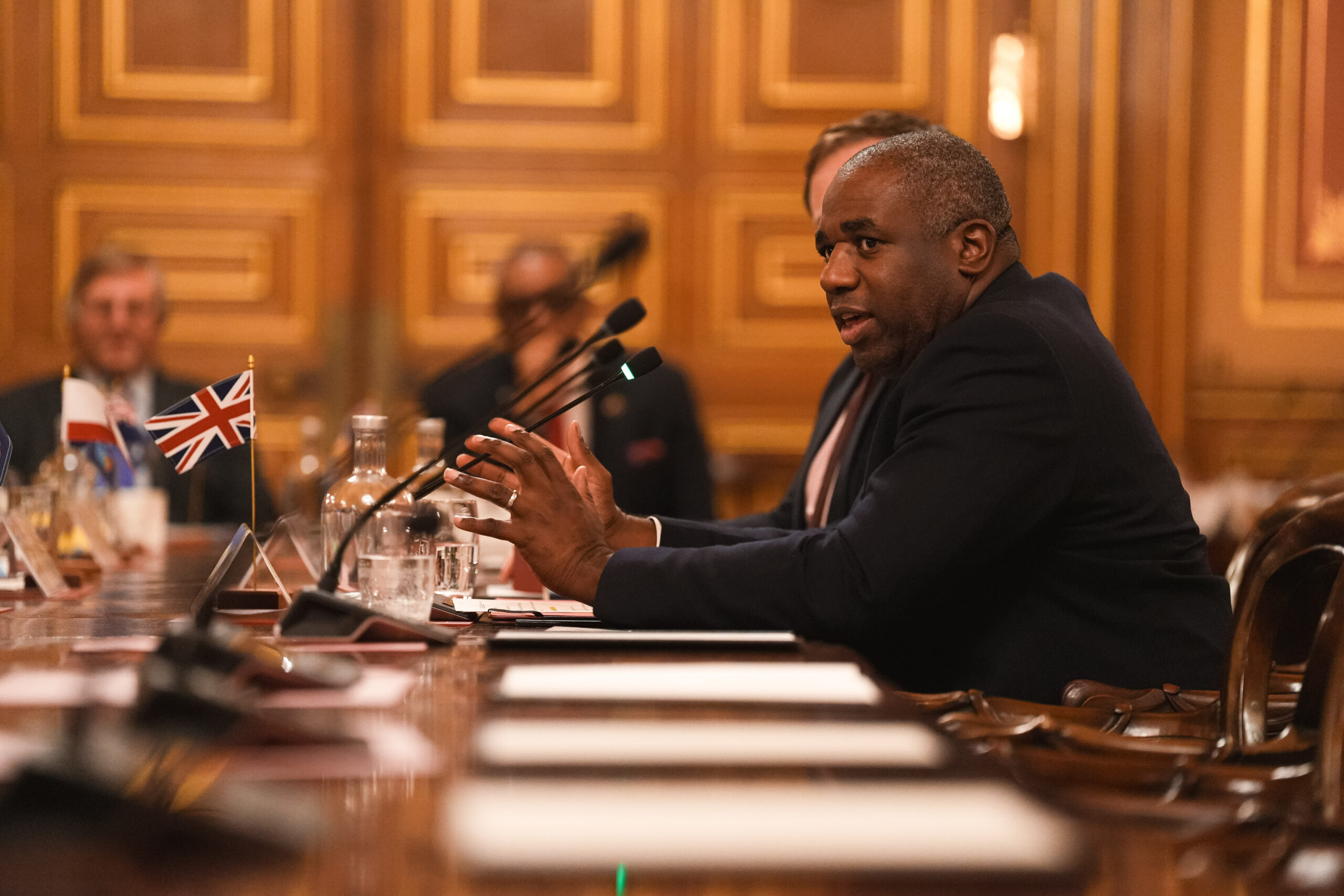After years of attempts at reform, offshore havens still offer secrecy for those determined to hide money and evade tax. In a week when five of the UK’s Overseas Territories have ignored yet another deadline for functioning ‘beneficial ownership’ registers, new figures obtained by TaxWatch on UK tax enforcement stemming from the Pandora Papers show that leaks can’t supplant proper information about who really owns offshore companies.
***
This week five British Overseas Territories, including major offshore financial centres like Bermuda and the British Virgin Islands, added another broken promise to over a decade of delay on tax and corporate secrecy.
Since 2013, the UK government has been asking the Overseas Territories to introduce publicly accessible registers showing the real, beneficial owners of companies registered in their jurisdictions. This should be a basic piece of transparency: the UK itself has had a public register for over a decade.
In 2018, after five years of polite requests, Parliament set a hard deadline: by 2020, if any Overseas Territory had not introduced a public beneficial ownership register, the UK government was required to lay before Parliament an ‘Order in Council’ – UK legislation applying to the Overseas Territories – instituting such registers directly.
In 2020, the UK government said that it wouldn’t lay the Order in Council before Parliament until the end of 2023, giving the Overseas Territories more time to do the job themselves. That deadline too whistled by. In November 2024, a joint statement from the Overseas Territories promised yet again that beneficial ownership registers would be in place by June 2025: with information either publicly accessible, or – already a climbdown – available on request to a wider body of non-enforcement stakeholders (‘legitimate interest registers’).
June 2025 has come and gone: and all the Overseas Territories that serve as major tax and secrecy havens have essentially ignored the deadline. A glass-half-full statement by Foreign Office minister Steven Doughty yesterday (3 July) hailed “progress”, welcoming existing or promised public registers in St Helena’s and the Falkland Islands: both places with a tiny number of registered companies. Meanwhile the British Virgin Islands, the Cayman Islands and Bermuda – three global centres of the offshore financial world – have all failed to do what they promised, as well as the smaller financial centres of the Turks & Caicos Islands and Anguilla.
Hiding the ownership of companies and their assets is central to tax evasion and a raft of other financial crimes, from money laundering to sanctions evasion to corruption. With the Chancellor promising earlier this year to “overhaul [the UK’s] approach to offshore tax non‑compliance by the wealthy”, it matters for the integrity of the UK tax system that Britain’s Overseas Territories continue openly to ignore their previous promises on corporate transparency.
Part of the problem with secrecy is that it makes it difficult even to gauge the scale of the problem. TaxWatch has been tracking the UK government’s efforts to measure the Offshore Tax Gap: how much UK tax is lost by UK residents hiding taxable income and gains offshore. As we’ve said previously: recently published estimates, even of one subset of the offshore gap, are almost certainly much too low. Below we look at how the Overseas Territories’ continued provision of effectively secretly-owned companies supports this view: and why, in an era of cuts and spending constraints, the UK’s own public finances may demand a tougher approach.
Global information exchange: progress and remaining gaps
In the last decade, many countries have built information‐exchange networks about one group of offshore assets and income: money (and some other asset classes) held in accounts in financial institutions.
The OECD says that by 2022, information about over 123 million bank accounts (holding roughly €12 trillion) was being automatically exchanged among tax authorities via the OECD’s Common Reporting Standard (CRS).
However, the information exchanged has limits. The CRS only covers financial accounts of individuals and entities. In practice this means that the ownership of real-estate holdings, assets and income held via non-financial companies, and physical assets like art or commodities owned offshore, can remain opaque. In other words, only one (important) slice of offshore income and wealth is visible. Other loopholes in CRS — compounded by lack of beneficial ownership transparency — provide further barriers. For instance, banks are not required to report the natural persons behind an “active” company’s account.
And even with CRS in place: without global coverage, tax evaders may simply move. One academic study found that CRS implementation reduced deposits in traditional havens by roughly 14%, because wealthy individuals relocated funds to non-CRS jurisdictions.
In short: even with CRS, offshore companies and other legal entities can still hide income and assets from tax authorities. Getting behind the ownership of offshore companies remains a vital tool for closing this gap.
This is one reason why – despite CRS – HMRC and other tax authorities have sought to exploit bulk leaks of data about offshore company ownership. Since June 2023, for instance, HMRC has written to 1,277 UK tax residents who were named as clients of 14 offshore service providers exposed in the “Pandora Papers” leak in 2021, giving those with undisclosed offshore income and gains a deadline to correct their tax affairs. (Notably, the largest proportion of the Pandora Papers records – around 30 percent of 11.5 million leaked records – came from trust providers in the British Virgin Islands, holding out this week on corporate transparency).
This Pandora Papers compliance work is ongoing, but TaxWatch has recently obtained new figures from HMRC showing that as of March 2025 they have received only 220 responses to these 1,277 letters (17 percent), and just 22 disclosures of undeclared offshore income. (This is up from 146 responses and 14 disclosures a year ago, in April 2024).
Of course, not everyone with an offshore company is evading UK tax. Nonetheless the low response rate, four years after this major data leak, underlines the fact that leaks can’t supplant systematic information about foreign companies’ ownership, income and assets.
Offshore havens dragging their feet
Only three Overseas Territories have so far instituted publicly searchable registers of companies’ beneficial ownership: Montserrat, Gibraltar and St Helena (though St Helena has not yet put any data in theirs).
The hold-out Overseas Territories argue that since 2017 they have already started to supply information on request from the UK’s law enforcement and tax authorities about companies’ beneficial ownership. This has generated some enforcement successes.
But as HMRC’s use of offshore leaks shows: a tax investigator being able to ask about the ownership of a company, or to run a search on an individual, presumes they already know about that company or individual, and already suspect in which jurisdiction they may be hiding assets. This hasn’t remotely the same utility as being able to see, in bulk, the companies and related assets that UK taxpayers own offshore. Nor does it allow the ‘many eyes’ scrutiny from investigators and researchers outside law enforcement that have exposed some of the most significant recent cases of offshore evasion.
At the time of writing, the Cayman Islands and the Turks and Caicos Islands have enacted enabling laws for a “legitimate interest” ownership register: a step forward, but still requiring the requester to know about a specific company in order to ask about its ownership.
Other territories have simply ignored or watered down commitments. Draft proposals from Bermuda and the BVI, for instance, would tip off the company about which information was being requested and empower them to block release of the information: alerting the target of any probe, helping them to slow it down, and enabling them to shift their assets to a more opaque territory.
And loopholes still abound. In Cayman, for instance, companies controlled by foreign trusts can avoid naming its ultimate beneficiaries, supplying only the names of a trust’s trustees instead. A corrupt official or tax evader can park wealth via a layered cross-border trust/company structure and stay hidden even under new rules.
Offshore tax gap a shot in the dark
Uncertainty about the scale of income and gains hidden offshore underlines how much offshore secrecy still exists.
In October 2024, HMRC published an estimate of the tax evaded by UK taxpayers on undeclared income in overseas accounts reported to the UK via CRS.
HMRC’s efforts to work out the size and composition of the Offshore Tax Gap should be applauded (few countries do this). HMRC also commendably acknowledges these figures’ uncertainty.
Nonetheless the estimate they came up with – £0.3 billion for 2018/19, the only year for which they have published a figure – is almost certainly a gross underestimate, for reasons TaxWatch has explored elsewhere. Indeed, a recent report from the National Audit Office suggests that HMRC have an unpublished estimate of the full ‘Offshore Tax Gap’ which is much larger than the published figure.
HMRC’s picture of UK taxpayers’ offshore wealth will never be perfect. But current international data exchange, focused on bank accounts, risks missing vast offshore castles built of trusts and shell companies. The level of secrecy persisting in Britain’s own Overseas Territories shows how hard it still is to breach these corporate castles. And people looking to hide wealth will flock to jurisdictions that resist disclosure.
New resources, but not enough information?
HMRC’s occasional gigantic successes against offshore evasion – like the £416m that it found F1 tycoon Bernie Ecclestone had concealed in a single offshore trust – suggest that there may be a huge amount of income and gains going untaxed offshore. And HMRC is putting more resources into tackling offshore tax non-compliance: currently just 5 percent of its efforts to make wealthy individuals pay their taxes are targeting offshore wealth and income. It will take more than nudge letters to uncover determined offshore evaders.
As the resistance to effectively searchable beneficial ownership registers shows, despite international progress, there are still powerful interests resisting financial transparency—often framing secrecy as a competitive advantage or a privacy right.
New offshore compliance resources are welcome: but they won’t deliver what they should if they must continue to push uphill against well-resourced actors, determined to keep parts of the offshore system in the shadows.
***
TaxWatch is an affiliate of the UK Anti-Corruption Coalition (UKACC). UKACC’s statement calling on stronger action to ensure the Overseas Territories meet their commitments on effective beneficial ownership registries is here. The UK announced yesterday that it will “convene an Illicit Finance Dialogue with elected leaders of the Overseas Territories” later in July to “jointly to take stock of progress against the Joint Ministerial Council commitments on beneficial ownership registers” and “agree further remedial actions”.
(Photo: UK Foreign Secretary David Lammy addresses a meeting of the British Overseas Territories in London, 21 November 2024 (c) FCDO)



